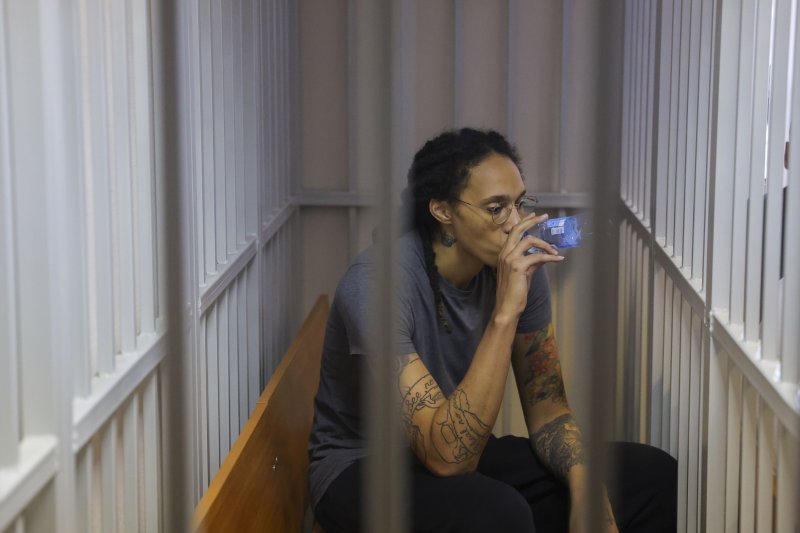1 of 4 | WNBA star Brittney Griner sits inside a defendants' cage in a courtroom in Khimki City near Moscow on August 4. Photo by Evgenia Novozhenina/EPA-EFE
The Phoenix Mercury star and two-time Olympic gold medalist was sentenced to nine years in a Russian penal colony, which is essentially a harsh prison camp descended from the infamous Stalin-era gulags.
Griner was in Russia to play for a Moscow basketball team during the WNBA off-season. Many WNBA players also play overseas to supplement their income, as the league pays far less than their male counterparts in the NBA receive.
![]()
U.S. and Russian officials might be negotiating a prisoner exchange that would trade Brittney Griner and Paul Whelan for Russian arms dealer
Viktor Bout, pictured, who's serving a 25-year sentence in the United States. File Photo by Narong Sangnak/EPA-EFE
Russian authorities found the vape cartridges in Griner's bags at an airport near Moscow in February. Before her trial, Griner pleaded guilty to the charges with the hope that it would bring a more lenient sentence. It did not, and the judge in the case basically gave prosecutors the sentence they wanted -- a sentence that Griner's attorneys and advocates say is excessive for the crime.
Despite Griner having less than 2 grams of cannabis oil in her bags, the Russian court ruled that she intentionally tried to smuggle it into the country.
Monday's appeal is considered by experts a necessary step toward a possible prisoner exchange between the Russian and U.S. governments. There have been reports that Griner and possibly Paul Whelan, an American jailed in Russia on espionage charges, could ultimately be part of a swap for Russian arms dealer Viktor Bout.
Bout is serving a 25-year prison sentence in the United States.
Russian officials have cautioned their U.S. counterparts against negotiating a prisoner exchange in the media.
"The discussion of the very sensitive topic of the exchange of imprisoned citizens of Russia and the United States is taking place within the framework of the channels determined by our presidents," Alexander Darchiev, director of the North American Department of Russia's foreign ministry, said, according to The New York Times.
















